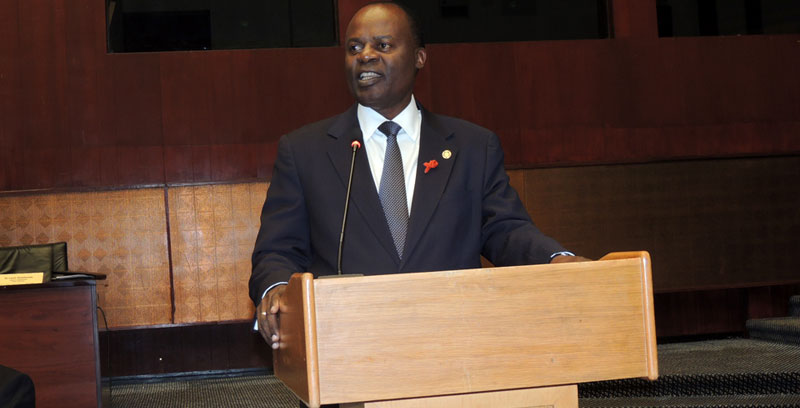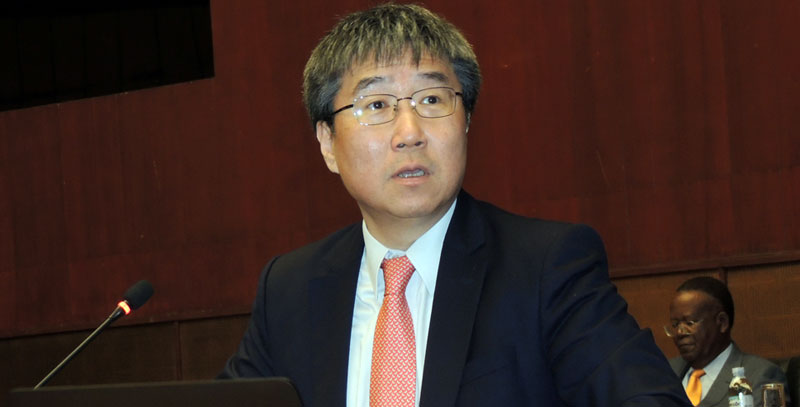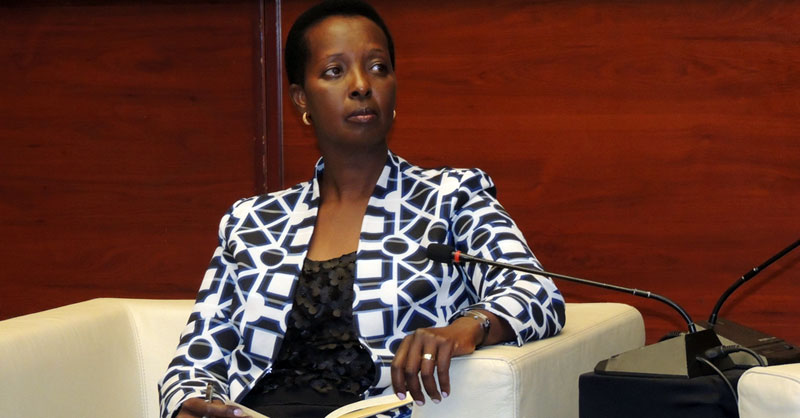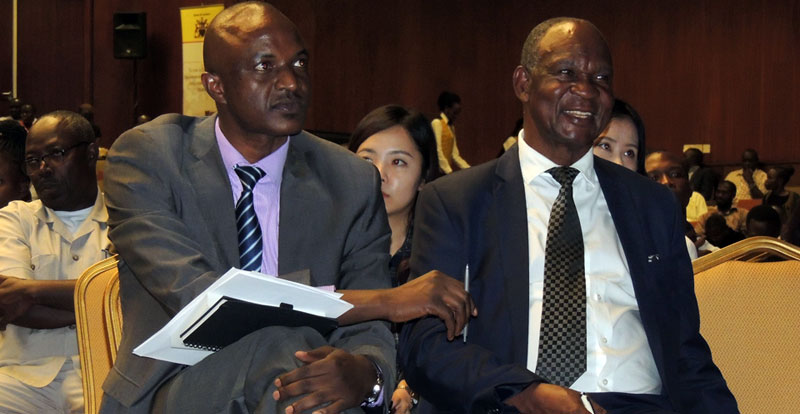Business
New dawn for Uganda
Bank of Uganda is interested in a debate about the role of the State in economic development!
What a week! Forever, I will remember the last week of November 2017. I attended two perfectly related yet unplanned debates at Kampala International Conference Centre.
First, Friedrich Ebert Stiftung (FES) invited me to present the findings of a baseline study we had conducted at our think-tank, the MUBS Economic Forum, about Industrial Policy and Economic Development in Uganda.
The study was one of the efforts by FES to get industrial policy back on Africa’s development agenda. Few studies I have done that are as satisfying and inspiring.
The following day, I attended the 25th annual Joseph Mubiru Memorial Lecture, organised by Bank of Uganda. The topic was “Rethinking the Role of the State in Economic Development.” Prof. Ha-Joon Chang from the prestigious University of Cambridge was the keynote speaker.
So, why the excitement? Why do these debates mean a lot to me? I will start with the last one.
Readers of this column know how long I have made noise on Uganda’s obsession with unguided, free-for-all markets promoted by the neo-liberal fundamentalists that globalisation has bred in droves.
Ardent readers of these pages know how much, in the last decade, I have questioned the wisdom of Uganda’s leaders and economic technocrats at Bank of Uganda and Ministry of Finance for thinking that since Uganda had liberalised its economy, government had no role to play apart from creating a “facilitating environment.”
State role revisited!
I have continuously wondered why government left the economy to operate without rules. When called upon to step up regulation to ensure that economic agents do not flout the rules/laws, Ugandan economic bureaucrats maintained the rhetoric, “Ours is a free market economy; we have nothing to do.”
On several occasions I have heard very senior economists, the who-is-who of our fraternity, advancing the neo-liberal dogma that private investment is ‘good’ while state investment is always ‘bad’.
They often cite ‘government failure’ to stop any debate on the role the state can play in economic development.
Then something unusual happens on Friday December 1, 2017. The Bank of Uganda (BoU)—home to and training ground of some of most radical market fundamentalists you will ever see—invited Prof. Chang to lead a conversation about the role of the state in the economy.
Chang is a brave promoter of industrial policy. In 2002, he authored a book, “Kicking away the Ladder” in which he illustrates how developed countries are attempting to kick away the ladder with which they climbed to the top.
He shows, in empirical facts, how none of the rich countries did what they are asking poor ones like ours to do to get rich.
When they were at the stage where developing countries are right now, none of the rich countries liberalised. None of them deregulated to allow free trade. None of them used the so-called private sector-led strategy.
Uganda is not South Korea?
In 2009, he penned a paper in which he called upon the two opposing sides on the idea of industrial policy to “Go beyond an unproductive confrontation.” Born in South Korea to a former Minister of Industry and Resources, Chang Jae-sik, it is not surprising that Chang is a perfect guru in industrial policy.
South Korea is one of the East Asian growth miracle performers that used industrial policy to defy the post-war neo-liberal stance. Korea and Uganda had comparable incomes per capita in 1970s of USD 260 and USD 189 respectively. Today Koreans are enjoying incomes as high as USD 27,600, while Ugandans are wallowing with peanuts as low as USD 660.
Of course Uganda is not South Korea. We have had bad governments in the 1970s and 1980s that reversed much of what had been achieved.
We still have serious governance challenges, particularly corruption, rent seeking, and all forms of capture and clientelism (elite, regulatory, etc.).
But even when the state became stronger, reformed the economy and politics, incomes did not grow. Why? Because the growth did not create jobs; instead it created inequality. The growth did not change the structure of the economy – agriculture remained the prime employer of Ugandans, yet GDP had shifted to services.
Agriculture itself remained subsistence, with 69% of all farming households producing food for the consumption of the cultivator and her family using hoes. This form of livelihood has left Ugandans not only in poverty but also sternly damaged the environment and the ecological footprint.
90% of businesses are kiosks!
The few Ugandans who left the villages to look for better opportunities in the city and other towns found themselves in the informal sector.
Over 90% of Ugandans employed outside of agriculture are vending imported items, riding commercial motor cycles (boda-bodas), or subsisting in a small salon or kiosk.
Grippingly these ramifications of neo-liberal fundamentalism affect not only economics.
Politics in Uganda (and elsewhere) is looking very differently when production is organised around informality and petty services. Economic uncertainty breeds political uncertainty, and the vice versa.
Like I often write in these pages, politics is very attractive in societies where a big chunk of the population is excluded from socio-economic prosperity. The legitimacy of a government lies in its ability to provide decent jobs and services to the people.
So, how fast can Uganda facilitate structural transformation of the economy to create more decent jobs for the thousands of its young people joining the labour market every year? This is the question that guided our study with FES.
What do stakeholders think?
Mr. President, most stakeholders we interviewed think the current development strategy being pursued by your Government is uncoordinated, poorly communicated, poorly understood. We are talking about the National Development Plan (NDP), now in its 2nd edition in a series of six five-year plans.
The NDP is being implemented using the strategy of private sector-led model, with government focusing on providing ‘facilitating environment’. Many stakeholders think this is a non-starter.
Mr. President, development is fundamentally about structural change, and structural change is essentially about industrialisation. Industrialisation has never been a private-sector-led activity. No country, in the history of economic development, has ever industrialised using the private sector. Why?
The reason is simple. Private sector only invests where returns are high, fast, measurable, and traceable. Building industries is not a quickie! Building industries is like watching grass grow. Private investors do not have that patience. Very few private investors experiment. Yet we need, not few but, so many jobs to be created as fast as possible to employ thousands of young Ugandans.
Uganda’s balance of trade
Conventionally, private sector joins industry after the state has helped them to test the waters as a first mover. Once they discover that a particular venture in manufacturing is profitable, they come and bring the capital and efficiency. It is at this stage that the state withdraws.
Secondly, private sector does not do business that does not bring them profit. Yet serious economists know that, even in absence of profit or even comparative advantage, it may be necessary to set up industries which will never be competitive, but which are needed to keep per capita incomes and employment growing.
That is why when Uganda was pursuing industrial policy (‘picking stocks’), during both the colonial and post-colonial era, the economy was doing quite well.
Uganda’s trade balance in 1962, for example, looked like this: export brought in £29.6 million (or UGX 144 billion in today’s currency), while import cost only £133,000. This left the country with a healthy surplus of £29.4 million.
When the country stopped picking stocks—on advice of the market fundamentalists—things began to go wrong. Since 1980s to date, the country has experienced a BOT deficit year-in-year-out.
The deficit has grown from US$ 83 million (UGX 298 billion in today’s shilling) in 1980 to US$ 2.3 billion (UGX 8 trillion) in 2015. No wonder the shilling has depreciated like dead body.
We deployed cowards?
We find that real ‘spoilers’ of the debate on what Uganda must do to address the constraints to economic development are fear, private interests (‘tenderpreneurs’), and a cowardly bureaucratic and political elite (some of whom were intellectually captured, if not rented by Washington and multinational companies).
Mr. President, forget about the infrastructure gaps, the bad weather that has affected agriculture, lack of affordable and viable long term development finance, underdeveloped human resource, and others.
These are technical constraints (symptoms) that have been perpetuated by the real spoilers mentioned above. Mr. President, the real elephant in the room is the weak political economy.
One professor of political science thinks we deployed cowards and deserters to fight our economic wars. I would love to hear what their commanding General is thinking.
Comments






























